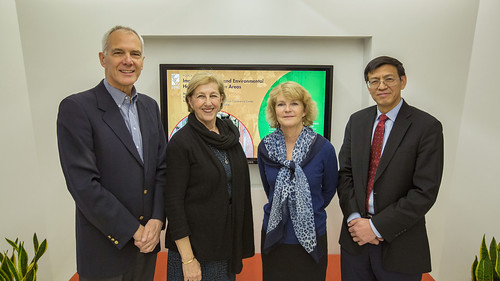Speaker:
- M. Ann Tutwiler, Director General, Bioversity International (Video | Presentation)
Closing Remarks:
- Shenggen Fan, Director General, IFPRI
- Q&A Video
Today, more than half the world’s population resides in cities. By 2050, city and near-city populations are expected to increase by 66 percent, placing extreme pressure on urban food systems. City policy makers recognize that innovative food policies and interventions are necessary to regulate food production; generate healthy food consumption based on safe, diversified, and affordable food; and allow for a cleaner, healthier environment.
This seminar focused on key municipal programs and policies in urban and peri-urban food systems aimed at making and keeping both people and the environment healthy. The presentation and discussion include ways to improve food systems to meet those goals and identify feedback loops between food production, processing, distribution, consumption, and waste. To do so, the following questions were explored:
- How is food produced? How does that impact upon environmental health, which can, in turn, affect human health as mediated by changes in water and air quality?
- Where is food produced? How does that influence food access and human health via exposure to environmental quality impacts of production practices?
- What food is consumed? How does that impact upon human and environmental health?




